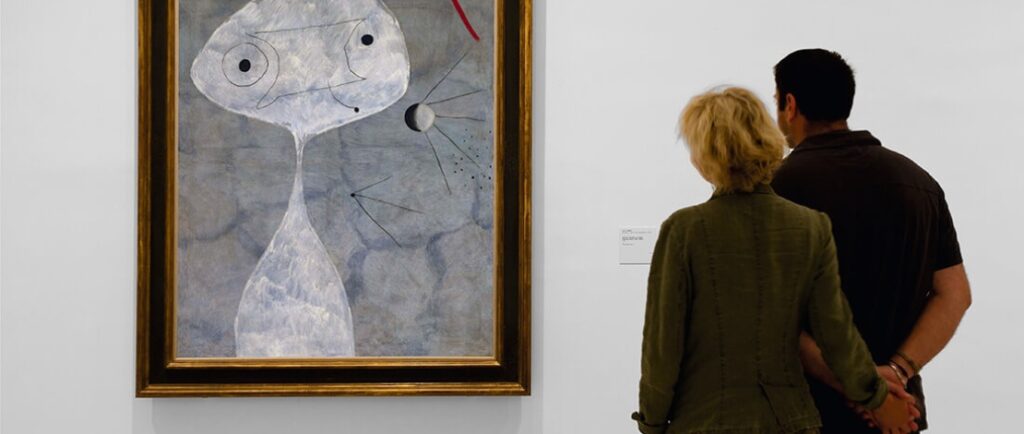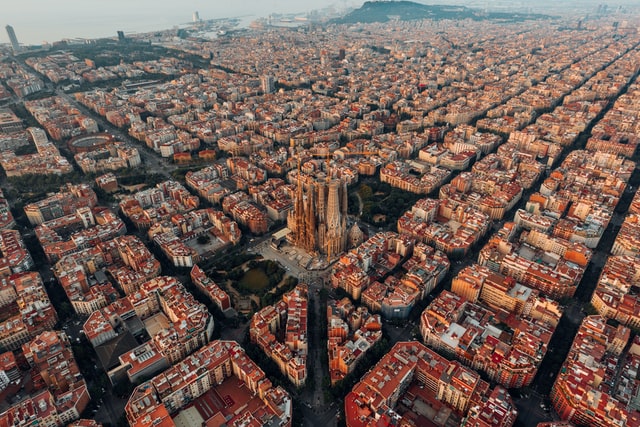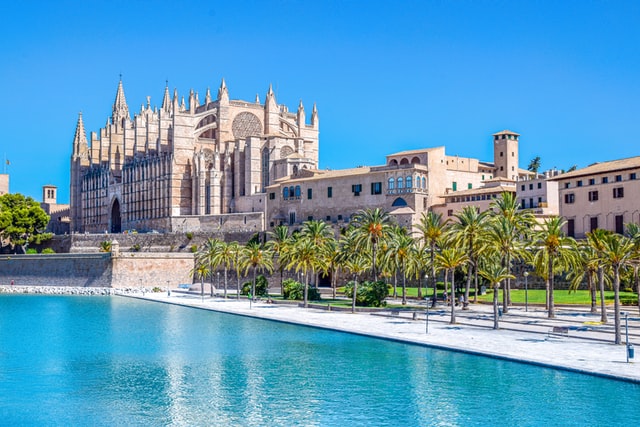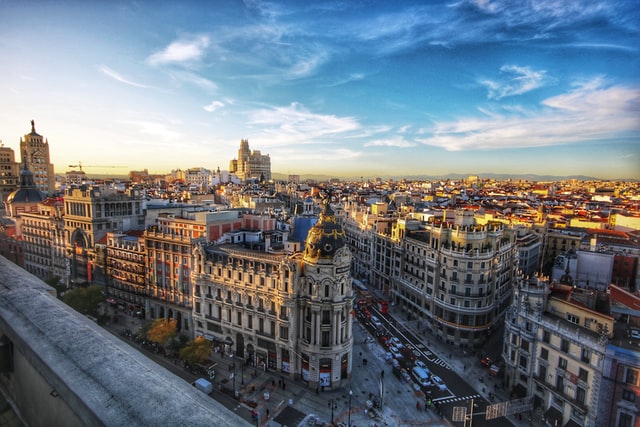
Get ready for a journey through the land and the work of one of the most original, influential artists of the 20th century: Joan Miró. Your traveling companions will be rebellion, imagination, eccentricity, color, strange geometrical constructions, and surrealist collages and sculptures. We will be stopping in the city of his birth, Barcelona; in Mont-Roig, a destination which captivated Miró; in Madrid and its famous Reina Sofía National Art Museum, and in Palma, where Miró spent his final years.
On this journey, you will feel a special connection between Miró and the nature surrounding him in Mont-Roig and Mallorca. Experience the intensity of seeing his work in person, and find out more about this artist, recipient of awards ranging from an honorary doctorate from Harvard to Spain’s Gold Medal of Merit in the Fine Arts.

Barcelona, the city of his birth
Joan Miró was born in Barcelona in 1893, and the city was also the site of his first solo exhibition and the birthplace of his only daughter.
This fabulous city, which today attracts tourists of every stripe, is full of traces of this artist. Oddly enough, he began his career as an accountant to create unique paintings and a plethora of sculptures and prints. We suggest taking at least a weekend to discover the most important sites. And if you have longer, that’s even better.
Mont-Roig del Camp, the artist’s refuge
You will find this small town in Tarragona province, around 120 kilometers south of Barcelona.
Distance: 125km
Journey: By car / Duration: 1 hour 25 minutes
In 1911 Miró caught typhoid fever and spent time convalescing in a farmhouse his parents had recently bought here. It seems that he fell in love with the place and its natural setting, as he would go on to spend a great deal of time in Mont-Roig and drew inspiration from its landscapes. He even said that “all my work is conceived in Mont-Roig.” Did you know that one of his most important works, The Farm, is based on this place?

Palma de Mallorca, the final years
According to Miró, “Mallorca is a charming island, where some places still have the freshness of the first days of creation.”
Distance: 261km
He had a special relationship with Mallorca: his mother was from there, as was his wife Pilar Juncosa, whom he married on the island, and he died there. You will love this beautiful Mediterranean island and its turquoise waters. An excellent way to get here is to fly from Barcelona to the airport of Palma de Mallorca, the capital (the flight takes just one hour).In 1956 Miró moved to Palma, where he built a house and the studio he had always dreamed of, designed by his friend Josep Lluís Sert. This studio is now part of the Fundació Pilar I Joan Miró, which of course, we recommend you visit. The center was designed by Moneo and held around 6,000 works by the artist. In summer, ask if there is a concert in the gardens. While in Palma, have a delightful swim in one of the island’s coves, or visit the Cathedral or Bellver Castle. Visit museums with artists’ works, such as the Juan March Foundation or Es Baluard Museum of Modern and Contemporary Art.

Madrid, the perfect complement
Miró’s fame transcends frontiers, with his work being in museums internationally and in Madrid.
Distance: 640km
Spain’s capital enjoys excellent transport links (the flight from Palma de Mallorca takes around an hour and a half, and the options for traveling between Madrid and Barcelona include an Air Shuttle with daily flights up to every 20 minutes on working days). In the city center, you’ll want to visit the famous Reina Sofía National Art Museum to see works by Miró like “Femme, oiseau, étoile (Homenatge a Pablo Picasso)” (Woman, Bird, and Star [Homage to Picasso]). You will also have two more world-famous museums nearby: the Prado and the Thyssen-Bornemisza. And if you want to see the last work of art by this artist, go to the Parliament building (Palacio de Congresos, Paseo de la Castellana, 99) to see the mural by Miró facing Avenida General Perón.
